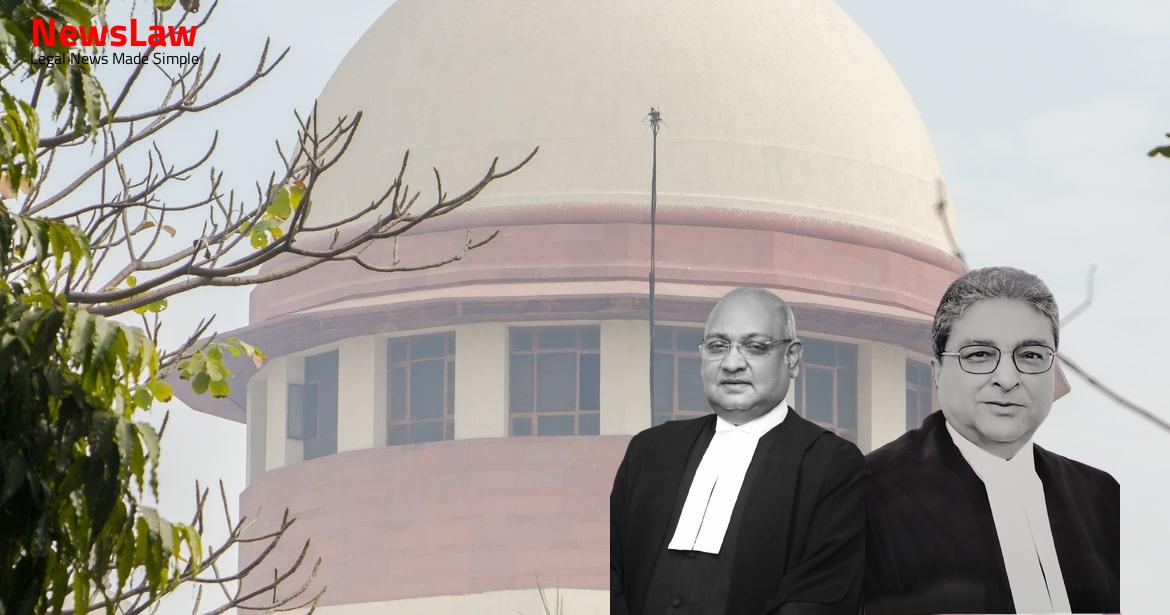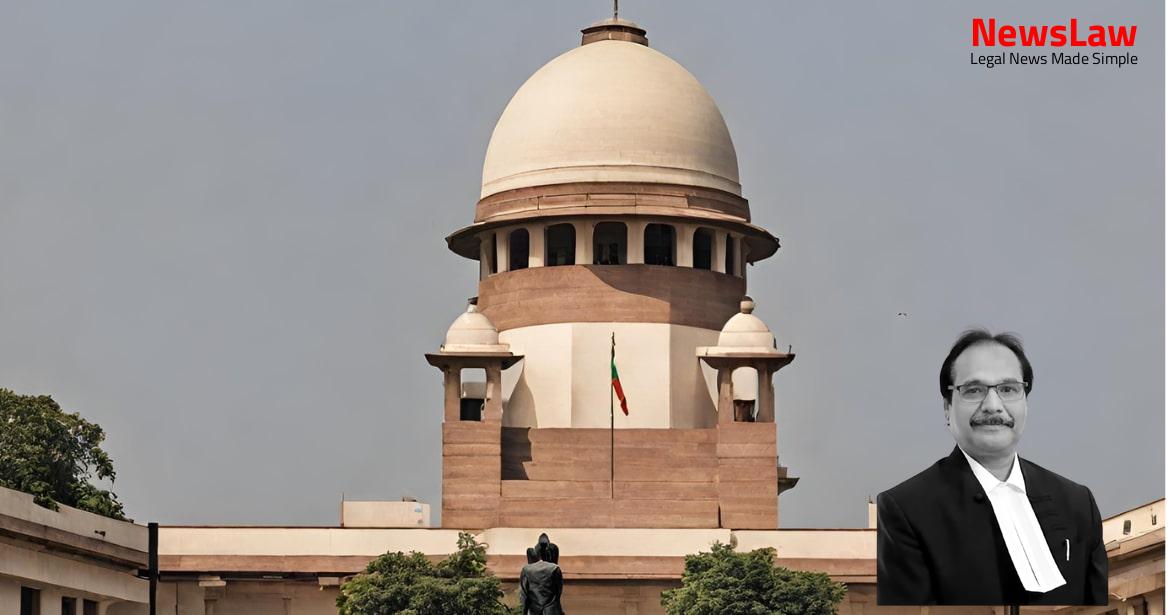Delve into the detailed legal analysis conducted by the court regarding discrimination in the appointment process. The court’s scrutiny of the issue highlights crucial aspects of merit-based selection processes and legal implications of alleged discrimination. This summary navigates through the key points of the court’s analysis, providing insights into the complexities of the legal battle and the importance of upholding fairness and equality in appointments.
Facts
- Background of the dispute related to B.Ed. examination results provided before the application submission deadline
- Counsel arguments heard regarding clarification/modification of previous judgment and contempt petitions
- Commission advertisement for Post-Graduate Teachers requiring B.Ed. qualification
- Miscellaneous Applications directed to be listed before the Bench for further consideration
- Candidates needing to seek Court intervention to implement favorable orders for appointments
- Issuance of notice to alleged contemnors, appointment of 35 out of 90 candidates post-contempt notice
- Lack of information in the counter-affidavit about steps taken by alleged contemnors to appoint the remaining 55 candidates
- Rejection of candidature challenged via writ petitions in High Court
- Candidates’ applications rejected based on non-final B.Ed. results before the cut-off date
- Appointment letters issued to 90 candidates within the deadline set by the court
- The High Court affirmed the eligibility of candidates possessing provisional/confidential results as long as authenticity was not in doubt.
- Respondents not entitled to salary for unworked period, only due seniority with increment from date of appointment of others.
- Candidates filed Contempt Petitions for non-compliance of court orders.
- Court directed 90 candidates to be appointed below those who had already joined, based on inter se merit.
- Court disapproved High Court’s suggestion to amend Rules for considering educational qualification only at screening/interview.
- Court noted laxity of the Commission in compliance with orders and issued notices for Contempt Petitions.
- Court passed interim order directing 90 vacant posts to be offered to candidates within four weeks.
- Universities can declare results provisionally/confidentially before official declaration.
- Candidates with provisional/confidential results before cut-off date found eligible.
- Division Bench endorsed Single Judge’s views on eligibility of candidates with provisional results.
Also Read: Ensuring Maintenance Rights: Court’s Legal Analysis
Arguments
- Learned counsel for the appellant argued that some candidates were unable to apply for conveying their result confidentially.
- The argument is that these candidates could not be discriminated against for not being able to avail of the confidential result option.
- The issue of discrimination based on this inability to apply for confidential results was strongly presented by the appellant’s counsel.
Also Read: Analyzing Evidentiary Value in Criminal Conviction Case
Analysis
- The Commission’s submissions highlight a discrepancy in the merit-based selection process for the posts of PGT and TGT.
- Candidates’ seniority is subject to change with variations in marks and date of birth.
- Candidates with higher marks cannot be placed below those with lower marks in merit.
- The court’s directions on merit placement were to be implemented within four weeks.
- The Commission’s delayed action only occurred after contempt petitions were filed.
- Representation from ineligible candidates post-result declaration raised issues of parity.
- Inter se merit and appointment verification were key considerations.
- Clarifications and modifications to court orders were sought due to ongoing litigations and pending matters.
- Deference to merit and rights of candidates approaching the court before the judgment date were emphasized.
- Recommendations and appointments issued during the compliance process are delineated by subject and date.
- Issues of delay, compliance, and justification were addressed in the Commission’s submissions.
- The appointments and recommendations were entangled in a complex legal battle with multiple candidates and posts involved.
- The impact of the court’s order on merit and rights of candidates lower in merit were major areas of contention.
- The Commission’s compliance, clarification requests, and pending litigations before the High Court were significant aspects of the analysis.
Also Read: Legal Authority and Res Judicata in Representation Matter
Decision
- Newly appointed candidates not entitled to salary for the period not worked, but entitled to seniority and increment
- Commission expected to recast the merit in accordance with the law
- Candidates who did not appear for the interview or raise issues not entitled to consideration
- Cases of candidates denied appointment due to merit to be considered for existing vacancies in accordance with the law
- Status quo to be maintained until the Commission recasts the merit position and eligible candidates receive new offer of appointment
- Appointment to relate back to the original date of selection for those appointed after the court judgment
- Applicants requesting clarification and further orders from the Hon’ble Court
- Selection process carried out by HSSC, Department issues offer of appointment after verification of documents
- Dispute about provisional result and final result
- Contempt petitions disposed of as no case of willful or deliberate disobedience made out
Case Title: HARYANA STAFF SELECTION COMMISSION Vs. PRIYANKA (2022 INSC 536)
Case Number: MA-000539-000569 / 2022



